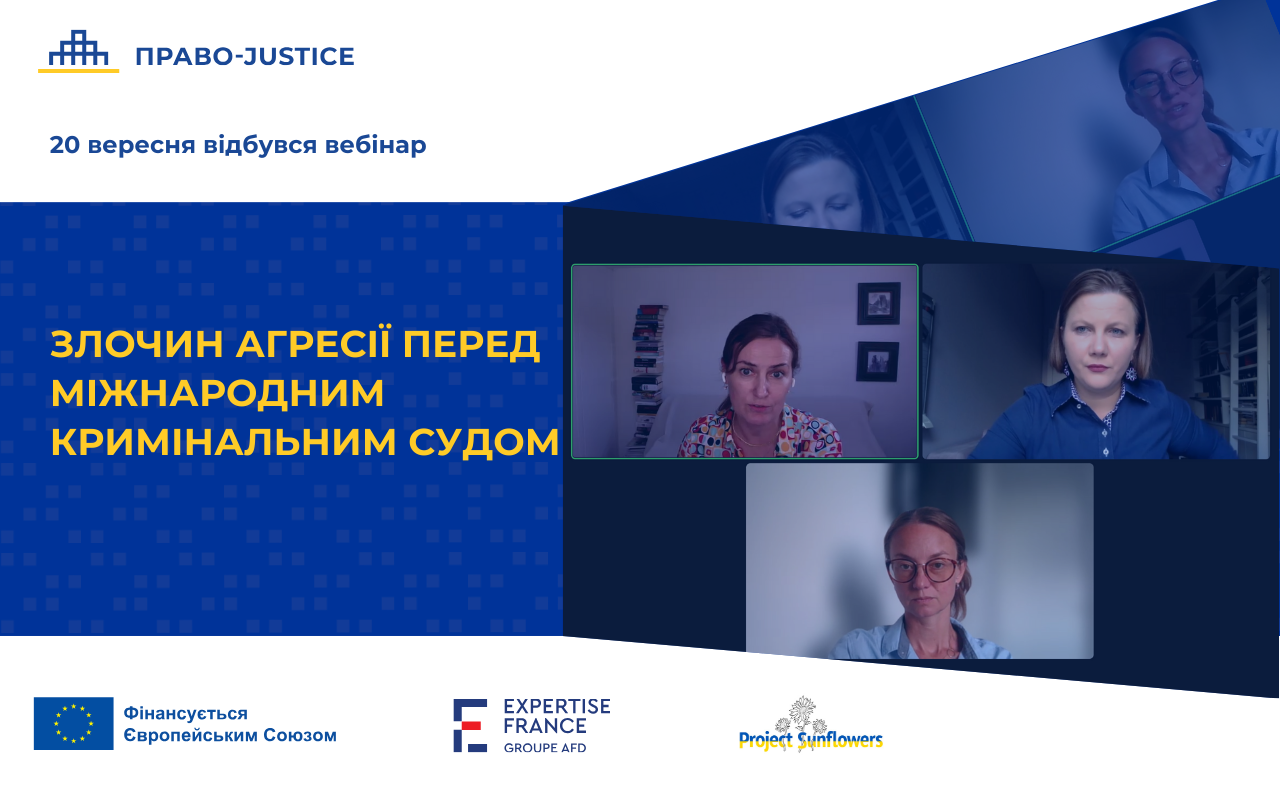A webinar on prosecuting the crime of aggression before the ICC was held with the support of EU Project Pravo-Justice

On 20 September, the Sunflowers Project, with the support of EU Project Pravo-Justice, organised a webinar dedicated to the crime of aggression before the International Criminal Court. The presentation at the event was delivered by Patrycja Grzebyk, Professor at the University of Warsaw, international criminal law expert, author of the seminal monograph “Criminal Responsibility for the Crime of Aggression” (Routledge 2013). The webinar was moderated by Hanna Kuczyńska, Professor at the Institute of Legal Sciences of the Polish Academy of Sciences.
In her presentation, Professor Patrycja Grzebyk highlighted several challenges related to the crime of aggression. In particular, she elaborated on why it is so difficult to initiate the ICC’s jurisdiction over the crime of aggression and the role of the UN Security Council in this process. She explained who can be held accountable for the crime of aggression and what is the relationship between the crime of aggression and other international crimes under the Rome Statute. In addition, Professor Patrycja Grzebyk answered the questions about the prospects of bringing the military and political leadership of the Russian Federation to justice for the war against Ukraine using the international law tools.
“Russia has not acceded to the Rome Statute. Therefore, given that it has a permanent seat in the UN Security Council, this body cannot be expected to provide an opportunity to bring Russian officials to justice for the crime of aggression. Therefore, in my opinion, establishing a hybrid body – an international tribunal – could ensure that the Russian leadership can be held accountable. In this context, it is important to secure the support of the UN General Assembly, which would take the situation to a whole new level,” said Patrycja Grzebyk.
Professor Grzebyk outlined what Ukraine needs to do to set up a hybrid tribunal and expressed hope that the UN would be able to support this initiative.
“We see changes in the world, we see changes in the law. Ukrainians are doing a lot to bring Russia to justice. Therefore, it seems to me that it is not the Ukrainians who need to make more efforts, but the world that needs to consolidate efforts. We cannot allow a situation where justice for Ukraine is discussed without Ukraine’s participation, without the participation of the people who suffered the most from the war,” she concluded, noting that other countries should play a complementary role in the efforts to prosecute the crime of aggression against Ukraine.
Anna Adamska-Gallant, Key International Expert, Judiciary Component Lead of EU Project Pravo-Justice, highlighted the approaches used by Ukrainian lawyers in the field of international law.
At the end of the webinar, the organisers expressed confidence that Russia will definitely be punished for the crime of aggression in the near future.